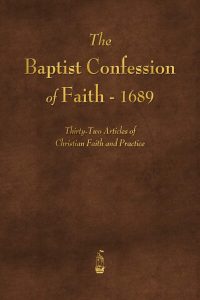The Baptist Confession of Faith 1689: A Historic and Doctrinal Overview
Introduction
The 1689 Baptist Confession of Faith stands as one of the most significant and enduring doctrinal statements in Baptist history. Rooted in the theological traditions of the Protestant Reformation, it was adopted by Particular Baptists in England as a declaration of their core beliefs. The confession reflects the influence of the Westminster Confession of Faith (1646) and the Savoy Declaration (1658) but adapts these documents to align with Baptist ecclesiology and covenant theology.
This confession remains a foundational text for many Reformed Baptist churches worldwide, providing a comprehensive summary of Christian doctrine grounded in Scripture.
Historical Context
The late 17th century was a turbulent period for Baptists in England. Persecution under the Clarendon Code had forced many Nonconformists, including Particular Baptists, to worship in secrecy. However, the ascension of William and Mary in 1688 brought greater religious toleration, allowing Baptists to publicly affirm their faith. In this context, representatives from over one hundred congregations met in London to publish their unified confession of faith in 1689.
While similar in structure and content to the Westminster Confession of Faith and the Savoy Declaration, the 1689 Confession includes key modifications, particularly on baptism, church government, and the Lord’s Supper.
Doctrinal Foundations
The confession is composed of 32 chapters, covering a wide range of theological topics. Below is an overview of its key doctrinal affirmations:
1. The Holy Scriptures
The confession begins with a robust affirmation of the authority, sufficiency, and inerrancy of Scripture. It declares the Bible to be the only infallible rule of faith and practice, rejecting any additional revelations or traditions that claim equal authority with God’s Word.
2. God and the Holy Trinity
The confession upholds the doctrine of one God in three persons: Father, Son, and Holy Spirit. It affirms God’s sovereignty, immutability, omniscience, and providential rule over creation.
3. God’s Decree and Providence
The confession highlights God’s eternal decree, affirming the doctrines of election and predestination. It teaches that God, according to His sovereign will, foreordains all things while upholding human responsibility.
4. Creation and the Fall
God created the world in six days, and mankind was made in His image. The confession upholds the doctrine of original sin, asserting that Adam’s transgression brought spiritual death upon all his descendants.
5. Christ and His Mediatorial Work
The confession affirms the doctrine of Christ’s atonement, emphasizing His substitutionary sacrifice, active obedience, and the sufficiency of His work to redeem the elect. Christ is the only Mediator between God and man.
6. Justification and Salvation
Justification is by grace alone through faith alone in Christ alone. The confession upholds sola fide and denies any role of human merit in salvation.
7. The Church
A significant departure from the Westminster Confession is found in the Baptist understanding of the church. The confession affirms a congregational model of church governance, where local assemblies are autonomous and comprised of baptized believers.
8. Baptism and the Lord’s Supper
Unlike the Westminster Confession, the 1689 Confession rejects infant baptism, teaching that only believers should receive baptism as a sign of their faith in Christ. Baptism is performed by immersion, symbolizing union with Christ in His death, burial, and resurrection.
The Lord’s Supper is upheld as a means of grace for believers, a commemoration of Christ’s sacrifice rather than a sacrament imparting salvific grace.
9. The Law of God and Christian Liberty
The moral law remains binding upon all believers, not as a means of salvation but as a rule of life. The confession also defends the Christian Sabbath, affirming the Lord’s Day as a time set apart for worship and rest.
Enduring Legacy
The 1689 Baptist Confession of Faith continues to be a defining document for Reformed Baptists today. It upholds the sovereignty of God, the sufficiency of Scripture, and the necessity of a regenerate church membership. Many Baptist churches around the world adhere to this confession as a standard of faith and practice.
Though centuries have passed, its relevance remains. In a time when theological confusion abounds, the 1689 Confession serves as a guiding light, pointing believers to the unchanging truths of God’s Word.
Conclusion
The Baptist Confession of Faith of 1689 is more than a historical document; it is a robust theological statement that continues to shape churches committed to biblical orthodoxy. It stands as a testament to the faithfulness of God’s people in preserving the truth, defending the gospel, and glorifying Christ. For those who seek a deeper understanding of Reformed Baptist theology, this confession remains an essential resource, guiding believers in doctrine and practice to the glory of God.




